WHEN you think Australian basketball, names like Gaze, Bogut and Mills come to mind. But Troy Sachs’ achievements eclipse them all. Born without a fibula, his right leg was amputated at two, but he competed in able-bodied sport until 14. The Australian Sports Hall of Famer talks about his life.
Sitting in the gym of his stylish home in a secluded corner of Chatswood, Sachs reflects on a career filled with highlights.
A five-time Paralympian, two-time gold medallist and Australian Sports Hall of Fame inductee, Sachs was once one of the biggest names in para sport.
A rare birth defect saw him born without a fibula. His right leg was amputated when he was just two and he has worn a prosthetic limb ever since.
His athleticism was evident from an early age and he competed in able-bodied sport up to the age of 14, when he discovered wheelchair basketball.
“It was just a breath of fresh air because using my upper body was like I was on an equal playing field,” Sachs said.
“I went from being a small fish in a huge pond playing able-bodied sport to really being one of the biggest fish in a very small pond.”
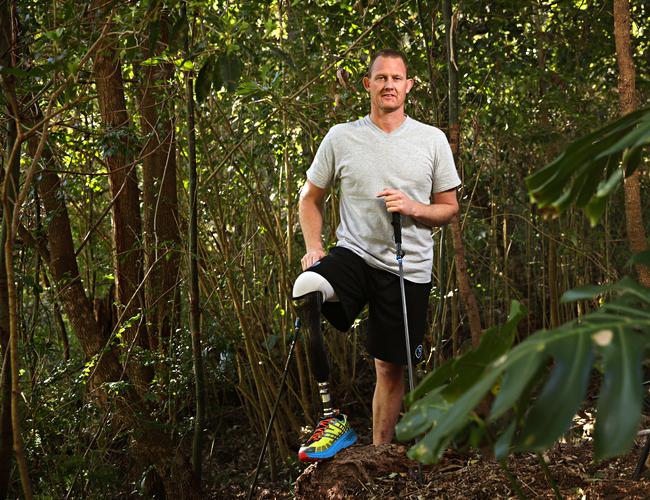
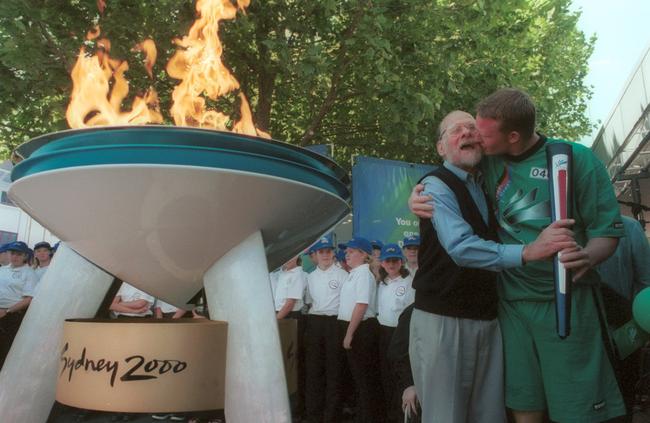
At the age of 15 he received the call up to the Australian team — the Rollers — to compete at the 1992 Paralympics in Barcelona, where the team finished eighth.
Four years later Sachs was in the team that won gold in Atlanta — the first basketball gold medal for any Australian team.
The then 19-year-old scored a world record 42 points in the gold-medal match and, following the games, was voted the best player in the world.
He went on to compete at three more Paralympic Games, in Sydney, Athens and Beijing, winning silver in Greece and finishing with gold in China.
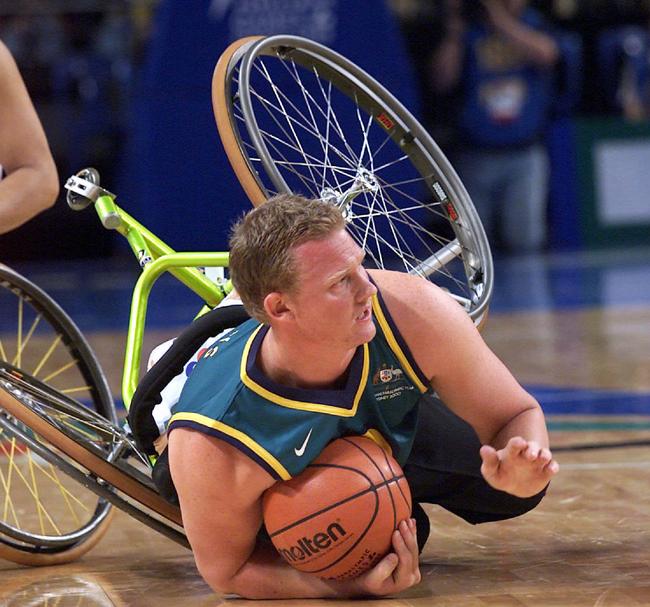
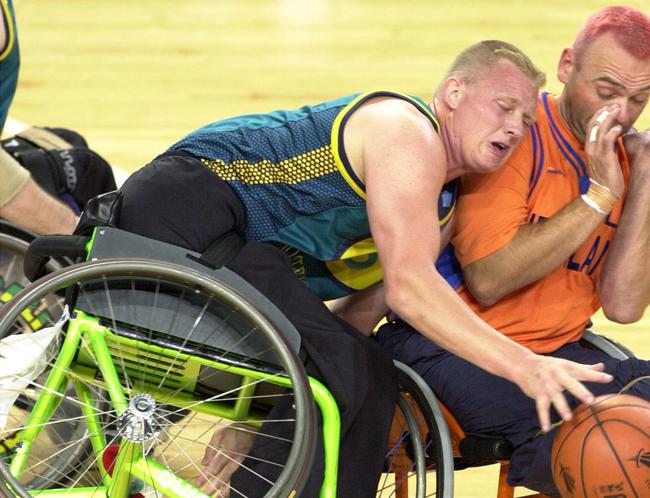
Reflecting on his remarkable career, the now 42-year-old lists the two gold medals, the Sydney Paralympics and being inducted into the Australian Sports Hall of Fame as the highlights.
“Winning the gold in Atlanta was awesome because, being 19 and being part of a team that won it all — and scoring that many points — for me it was like vindication for all the sacrifices I had made,” he said.
“I am the first wheelchair basketballer and only the third basketballer to be inducted into the hall of fame and that was huge for me because everyone in sport is trying to achieve that.”
During his life and career Sachs never sought special treatment because he had a prosthetic leg.
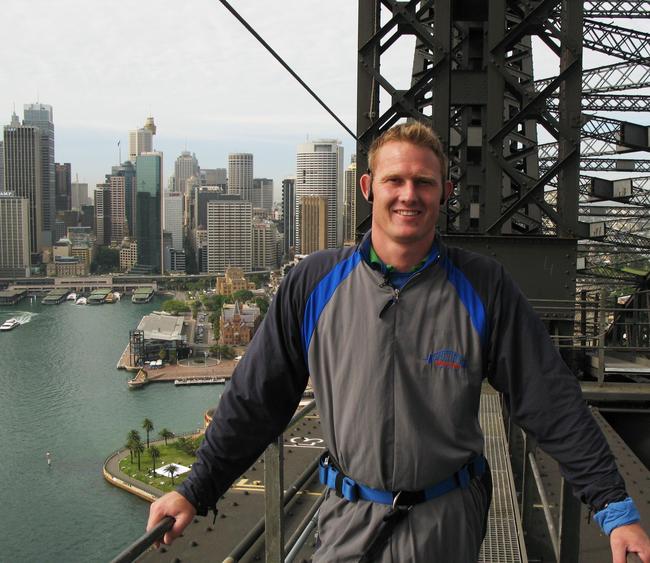
He said his parents’ “tough love” gave him the right attitude to compete and a relentlessly positive approach to his physical challenges.
“I don’t feel my disability has ever held me back and I don’t really look at myself as being disabled,” he said.
“I had an older brother and my parents were of the theory that whatever he was doing I was going to do.
“There was never a quarter given, so I didn’t have the opportunity to feel sorry for myself or sit back and say that’s too hard.
“It was like, well, that’s just life, nothing can change so get on with it or try something different.”
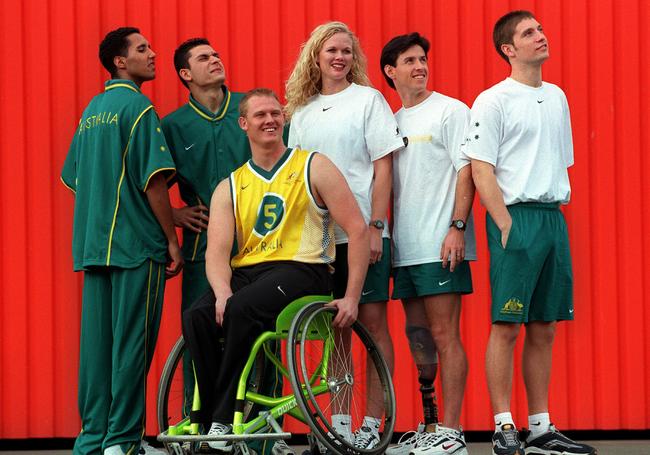
In the 26 years since his debut, the former Australian team captain said there had been many noticeable changes to para sport.
The biggest being the advances in medical science, which paradoxically has reduced the number of athletes competing.
Asked if he could turn back the clock and change his situation, Sachs' answer was typical of his personality and attitude.
“I don’t think I would change my disability if I had the chance because I don’t know what it would be like not to have a prosthetic,” he said.
“Because this is how I have grown up and it’s just how it is.
“When you are younger you might think, ‘Well, this is shit, I have no leg’. But I don’t really remember ever saying that and I hear kids who I work with now say that and maybe society has gotten a bit soft.”
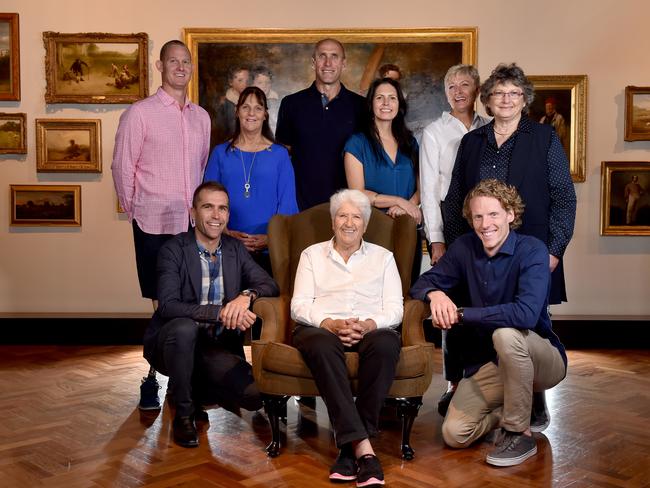
Another of the biggest changes, he said, was the increase in public awareness of the athletes. Paralympians such as quad tennis player Dylan Alcott and wheelchair racer Kurt Fearnley have significant public profiles. And, Sachs said, that was not always the case, especially during the early stages of his career.
The first time he remembers receiving significant public attention was during the 2000 Paralympics, where he was one of the faces of the Games and had his picture on billboards across the city.
“It is amazing the changes that have happened in disability sport. I mean, people know the names of certain Paralympians now,” he said.
“People like Dylan Alcott are pushing the boundaries in terms of what it is to be disabled, living in an able-bodied world.”
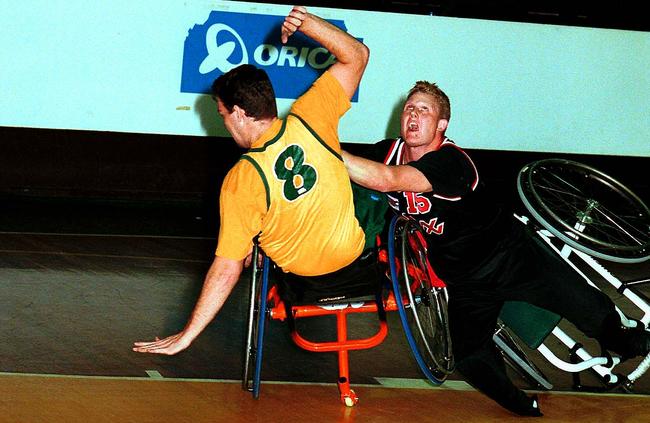
Almost 10 years since he retired from the professional level, the father of two now lives in Chatswood with his wife Philippa.
After moving to the north shore in 1997 to have closer access to training facilities, Sachs said the tight-knit community and leafy, open spaces made the area the ideal location for him and his family.
“I have lived in a number of places around the globe and the north shore is good and relaxed.
“It is cosmopolitan enough but it is still relaxed enough as well and I really love the spaces you can still have on the north shore.”
SACHS TRAINS GIANTS’ NETBALLERS
Life post-basketball has certainly been busy. Sachs runs his own wheelchair company, T5 Mobility, and has taken on a mentoring role with Blues Wheelchair Basketball Club.
Despite no longer taking to the court as a player, the five-time Paralympian said he was still very much motivated in building the stars of the future.
“I am now trying to give opportunities to the younger generation and say, ‘Hey, this is what you can do with wheelchair sport’,” he said.
“I want to give them something else to do other than play video games.”

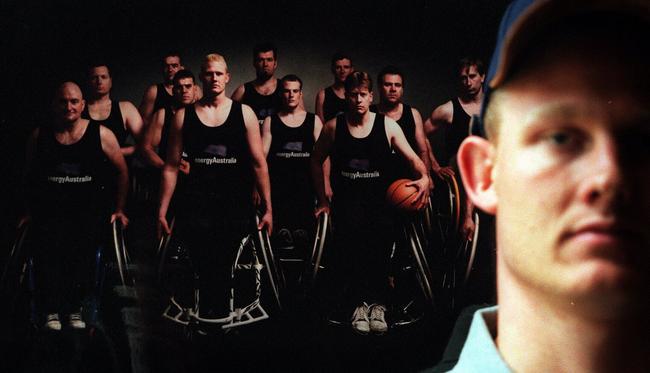
Add your comment to this story
To join the conversation, please log in. Don't have an account? Register
Join the conversation, you are commenting as Logout
Here’s what you can expect with tomorrow’s Parramatta weather
As we move into summer what can locals expect tomorrow? We have the latest word from the Weather Bureau.
Here’s what you can expect with tomorrow’s Parramatta weather
As we move into summer what can locals expect tomorrow? We have the latest word from the Weather Bureau.